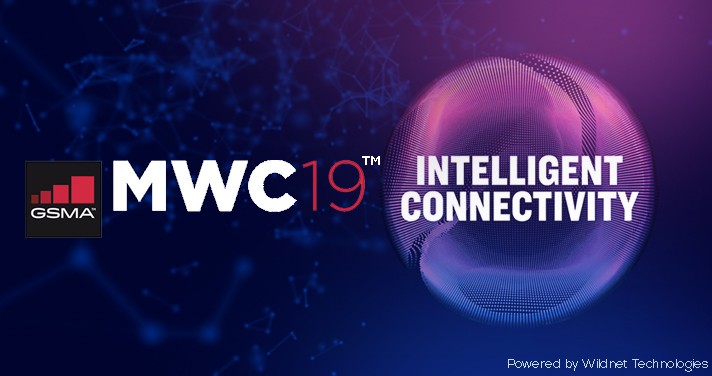Artificial Intelligence (AI) is transforming the marketing landscape at a rapid pace. As businesses strive to stay competitive, understanding how AI can enhance various marketing behaviors is essential. Whether it’s content creation, customer insights, or personalized marketing, AI is revolutionizing how marketers approach their strategies. In this article, we’ll explore several marketing behaviors that can significantly benefit from AI technology.
AI in Content Creation
Streamlining Content Production
One of the most evident applications of AI in marketing is the creation of content. AI tools can generate written content, design graphics, and even produce videos. These tools can handle repetitive tasks, allowing human creators to focus on more strategic and creative aspects. For example, AI can automate the generation of product descriptions or social media posts, ensuring consistency and saving time.
Beyond automation, AI-driven content tools can analyze existing content for gaps and opportunities. By examining competitor content and identifying trending topics, AI can suggest new content ideas that align with audience interests and preferences. This ensures that marketing teams can consistently produce relevant and engaging content that meets audience expectations.
AI can also help optimize content for SEO. By analyzing search patterns and keywords, AI tools can recommend adjustments to content structure and keyword usage, thereby enhancing visibility on search engines. This not only boosts organic traffic but also improves the overall effectiveness of content marketing efforts.
Enhancing Creativity
While AI might not replace human creativity, it can certainly enhance it. AI tools can analyze vast amounts of data to identify trends and preferences, offering insights that can inspire new content ideas. By understanding what resonates with audiences, marketers can tailor their content more effectively.
AI can offer creative suggestions by analyzing successful content formats and styles across different platforms. This can help content creators explore new formats, such as interactive content or immersive experiences, that engage audiences in innovative ways. By leveraging AI-generated insights, marketers can push creative boundaries and differentiate their brand in a crowded market.
Moreover, AI’s ability to process visual and textual data enables it to suggest aesthetic improvements. For instance, AI can analyze color schemes and design elements to ensure visual consistency across marketing materials. This not only enhances brand recognition but also creates a cohesive brand experience for the audience.
Automating Content Personalization
AI can personalize content delivery by analyzing individual user behavior and preferences. By understanding the types of content preferred by different segments, AI can tailor content recommendations to individual users. This ensures that each user receives content most relevant to them, thereby increasing engagement rates.
Additionally, AI can automate the A/B testing process for content. By testing different content variations with varying segments of the audience, AI can quickly identify which versions perform best. This enables marketers to refine their content strategies in real-time, ensuring they consistently deliver the most effective messages to their audience.
AI can also assist in localizing content for different markets. By understanding cultural nuances and language preferences, AI can help marketers adapt their messaging to resonate with diverse audiences. This not only broadens the reach of content but also enhances its impact across different regions.
Personalized Marketing
Targeted Advertising
AI excels at analyzing customer data to create highly targeted marketing campaigns. By processing information such as browsing history, purchase behavior, and demographic details, AI helps marketers deliver personalized advertisements. This not only improves the effectiveness of campaigns but also enhances the customer experience by providing relevant content.
Understanding which marketing behavior can benefit from AI is key to unlocking its full potential. One such area is ad placement optimization. AI can predict which platforms and times yield the highest engagement by analyzing historical performance data and user behavior. This ensures that marketing budgets are spent efficiently and effectively, maximizing reach and impact.
Moreover, AI can dynamically adjust ad content based on real-time data. For instance, if a particular ad is underperforming, AI can suggest changes to the copy, visuals, or targeting parameters to improve results. This agility enables marketers to continually refine their strategies and adapt quickly to shifting market conditions.
Customer Segmentation
Understanding the diverse needs of your audience is crucial for successful marketing. AI can automate customer segmentation by analyzing data patterns and clustering customers with similar characteristics. This enables marketers to craft personalized messages that resonate with each segment, leading to higher engagement and conversion rates.
AI can identify micro-segments within larger audience groups, allowing marketers to target niche audiences with tailored messages. By understanding the unique preferences and behaviors of these micro-segments, marketers can deliver highly relevant content that drives engagement and loyalty.
Additionally, AI can predict future segment growth by analyzing demographic and behavioral trends. This foresight enables marketers to anticipate changes in their audience and adapt their strategies accordingly. By staying ahead of these trends, businesses can maintain a competitive edge and better meet the evolving needs of their customers.
Cross-Channel Personalization
AI enables seamless personalization across multiple marketing channels. By integrating data from various sources, AI can provide a comprehensive view of each customer, allowing marketers to deliver consistent and personalized experiences across all touchpoints. This ensures that customers receive coherent messaging, regardless of the platform or device they use.
AI can also automate the personalization of email marketing campaigns. By analyzing recipient behavior and preferences, AI can tailor email content to individual users, increasing open and click-through rates. This targeted approach enhances the effectiveness of email marketing and fosters stronger customer relationships.
Furthermore, AI can personalize the customer journey by predicting the best action for each user. By understanding where customers are in their buying journey, AI can suggest relevant products, content, or offers that guide them toward conversion. This proactive approach not only boosts sales but also enhances customer satisfaction.
Improved Customer Insights
Predictive Analytics
Predictive analytics powered by AI can forecast future consumer behaviors based on historical data. By identifying potential trends and outcomes, marketers can make informed decisions about product launches, promotional strategies, and other key business decisions. This proactive approach can give businesses a competitive edge by aligning their strategy with anticipated market demands.
AI can also identify early warning signs of customer churn by analyzing behavioral patterns. By pinpointing at-risk customers, marketers can implement retention strategies to re-engage them and prevent churn. This not only preserves customer relationships but also enhances long-term revenue growth.
Moreover, predictive analytics can aid in demand forecasting by analyzing external factors, including economic conditions and seasonality. By understanding how these factors influence demand, businesses can optimize inventory management and pricing strategies, ensuring they are well-prepared to meet market demands.
Sentiment Analysis
Understanding how customers feel about a brand is invaluable. AI-driven sentiment analysis can process social media posts, reviews, and other forms of feedback to gauge public sentiment. This allows marketers to address negative perceptions promptly and capitalize on positive feedback, ultimately shaping the brand’s reputation.
AI can also identify sentiment trends over time, providing insights into how brand perception evolves. By understanding these trends, marketers can adapt their strategies to maintain a positive brand image and address emerging issues proactively. This ensures that the brand remains relevant and resonates with its audience.
Additionally, sentiment analysis can enhance competitive analysis by comparing a brand’s sentiment with that of its competitors. By understanding how customers perceive competitors, businesses can identify opportunities to differentiate themselves and capitalize on competitors’ weaknesses. This strategic insight can guide marketing efforts and enhance brand positioning.
Real-Time Data Analysis
AI can process and analyze customer data in real-time, providing marketers with immediate insights into customer behavior and preferences. By understanding how customers interact with content and products in real-time, marketers can make data-driven decisions that enhance customer experiences.
Real-time data analysis also enables dynamic content optimization. By understanding how different content elements perform in real-time, AI can suggest adjustments that improve engagement and conversion rates. This ensures that marketing efforts are always aligned with current audience preferences.
Furthermore, AI can monitor real-time social media activity to identify emerging trends and conversations in progress. By staying informed about what’s trending, marketers can create timely and relevant content that resonates with audiences. This agility enhances brand visibility and engagement across social platforms.
AI Marketing Tools
Chatbots and Virtual Assistants
Chatbots and virtual assistants are becoming commonplace in digital marketing. These AI-powered tools can handle customer inquiries, provide product recommendations, and even facilitate transactions. By offering instant, personalized responses, they enhance the customer service experience and free up human resources for more complex tasks.
AI-driven chatbots can also integrate with customer databases to provide personalized assistance. By understanding customer history and preferences, chatbots can offer tailored solutions and recommendations, enhancing the overall customer experience.
Moreover, chatbots can collect valuable customer data during interactions. This data can be analyzed to gain insights into customer needs and preferences, informing future marketing strategies and campaigns. By leveraging chatbot interactions, businesses can enhance their understanding of their audience and improve their marketing efforts.
Marketing Automation Platforms
AI-driven marketing automation platforms streamline various marketing processes, from email campaigns to lead nurturing. These platforms can analyze customer interactions and automate responses, ensuring timely and relevant communication. As a result, marketers can maintain consistent engagement with their audience without the manual effort.
AI can also enhance lead scoring by analyzing customer behavior and interaction data. By identifying high-potential leads, marketers can prioritize their efforts and focus on nurturing relationships with those most likely to convert. This targeted approach improves conversion rates and maximizes marketing ROI.
Additionally, marketing automation platforms can optimize campaign performance by analyzing real-time data. By understanding how different campaign elements perform, AI can suggest adjustments that improve results. This ensures that marketing efforts are continually optimized for success and aligned with business goals.
Advanced Data Analytics Platforms
AI-powered data analytics platforms offer deep insights into customer behavior and market trends. By analyzing vast amounts of data, these platforms provide marketers with actionable insights that inform strategy and decision-making. This data-driven approach enhances marketing effectiveness and drives business growth.
AI can also automate data visualization, transforming complex data sets into easy-to-understand visuals. This enables marketers to identify patterns and trends, facilitating informed decision-making promptly. By leveraging AI-powered data analytics, businesses can enhance their understanding of their audience and optimize their marketing strategies.
Moreover, AI-driven analytics platforms can integrate with other marketing tools to provide a comprehensive view of marketing performance. By understanding how different marketing efforts contribute to overall success, businesses can allocate resources more effectively and maximize their marketing impact.
Enhancing Customer Experience
Dynamic Pricing
AI can optimize pricing strategies by analyzing market conditions, competitor pricing, and customer behavior. Dynamic pricing models adjust prices in real-time, maximizing revenue while remaining competitive. This approach ensures that customers receive fair pricing, improving their overall shopping experience.
AI can also analyze historical pricing data to identify trends and patterns that influence customer buying behavior. By understanding these dynamics, businesses can develop pricing strategies that drive sales and enhance customer satisfaction.
Moreover, AI can assist in developing personalized pricing strategies by analyzing individual customer behavior and preferences. By offering tailored pricing or discounts, businesses can enhance customer loyalty and increase the likelihood of repeat purchases.
Personalization at Scale
AI enables marketers to deliver personalized experiences at scale. From tailored product recommendations to customized website experiences, AI can analyze individual customer data to create unique interactions. This level of personalization fosters customer loyalty and increases the likelihood of repeat purchases.
AI can also enhance customer journey mapping by understanding how different touchpoints influence customer behavior. By analyzing data from various interactions, AI can suggest improvements to the customer journey that improve satisfaction and drive conversions.
Additionally, AI can automate the delivery of personalized content across different channels. By understanding which content resonates with individual users, AI can tailor messages to meet their specific preferences, thereby enhancing engagement and fostering brand loyalty.
Virtual Reality and Augmented Reality Experiences
AI can enhance customer experiences by integrating virtual reality (VR) and augmented reality (AR) technologies. By creating immersive experiences, businesses can engage customers in innovative ways and differentiate their brand.
AI can analyze user behavior within VR and AR environments to provide personalized experiences. By understanding how users interact with virtual elements, AI can tailor content and recommendations to enhance engagement and satisfaction.
Moreover, AI can assist in developing interactive product experiences that allow customers to explore products in a virtual setting. This not only enhances the shopping experience but also provides valuable insights into customer preferences and behavior.
Conclusion
The integration of AI into marketing practices offers numerous benefits, including enhanced content creation and personalized customer experiences. By leveraging AI technology, marketers can streamline their operations, gain valuable insights, and enhance their overall effectiveness. As AI continues to evolve, staying informed about its capabilities and applications will be essential for businesses aiming to thrive in the digital age.
Understanding which marketing behavior can benefit from AI allows businesses to focus their efforts where the impact will be most significant. Incorporating AI into your marketing strategy is not just a trend—it’s a necessity. Embrace the potential of AI to revolutionize your marketing efforts and stay ahead in a competitive landscape. Whether you’re a small business or a large corporation, AI has the power to transform how you connect with your audience and achieve your marketing goals.
By understanding the diverse applications of AI in marketing, businesses can unlock new opportunities for growth and success. The future of marketing is here, and AI is at the forefront of this transformation. Don’t miss the chance to leverage AI’s capabilities and elevate your marketing strategy to new heights.
AI is transforming the marketing landscape by refining customer experiences, optimizing campaigns, and improving ROI across channels. From personalized content creation to data-driven automation, businesses that embrace AI stand to gain a significant competitive edge. When integrated effectively, digital marketing services powered by AI can deliver more accurate targeting, more intelligent analytics, and faster decision-making. For companies looking to scale their marketing strategy, leveraging AI through professional digital marketing services is no longer optional—it’s essential.
1. How does AI improve customer segmentation in marketing?
AI analyzes large datasets to identify patterns and behaviors, enabling marketers to segment audiences more accurately and personalize campaigns.
2. Can AI help with content creation in digital marketing?
Yes, AI tools can generate content ideas, write copy, and optimize keywords, helping digital marketing services deliver faster, more targeted messaging.
3. What role does AI play in predictive analytics for marketing?
AI utilizes historical data to predict future customer actions, enabling businesses to tailor their digital marketing efforts and enhance conversion rates.
4. How does AI enhance marketing automation?
AI streamlines repetitive tasks, such as email marketing, ad placement, and social media scheduling, making digital marketing services more efficient and cost-effective.
5. Is AI helpful in understanding customer sentiment?
Absolutely. AI-driven sentiment analysis helps marketers gauge public opinion about their brand, guiding more empathetic and strategic digital outreach.
Read More
Google Ads will now feature in Google AI Overviews, or AIOs
Revolutionizing Marketing: How AI Agents Are Automating Workflows for Maximum Efficiency
What Are Five Marketing Strategies That Retailers Spend Half of Their Annual Budget On?






